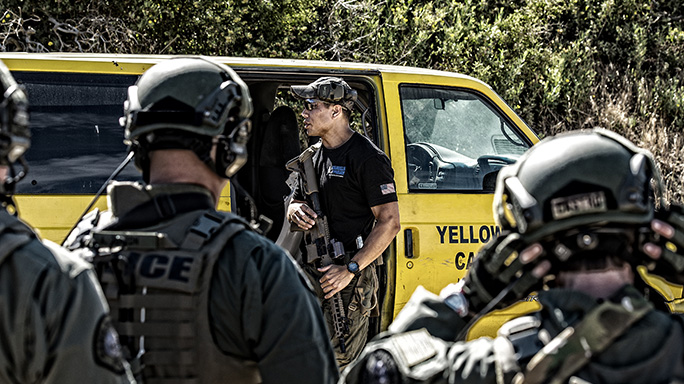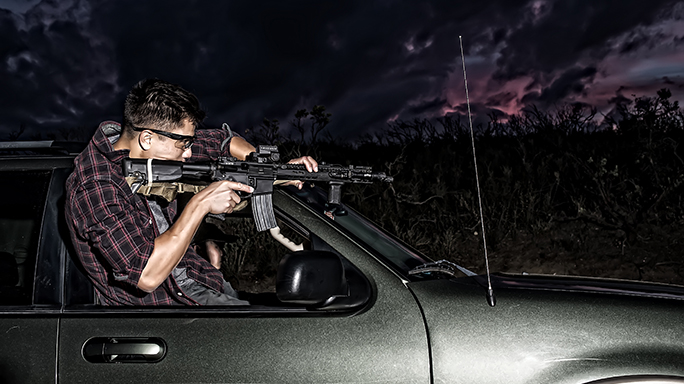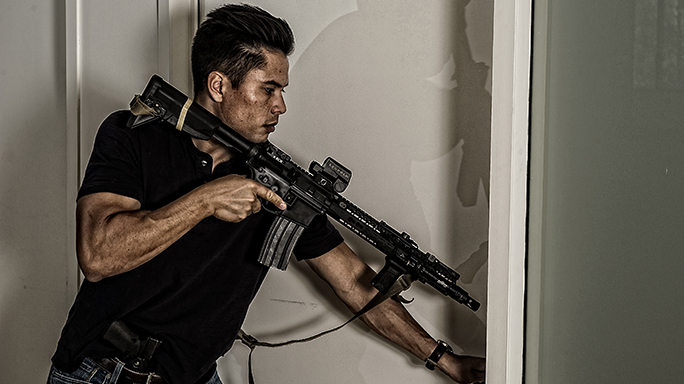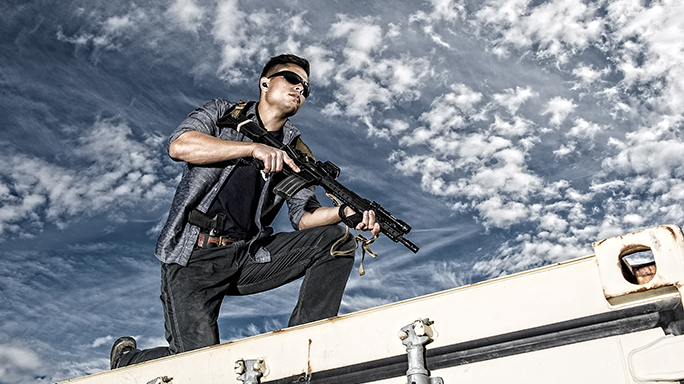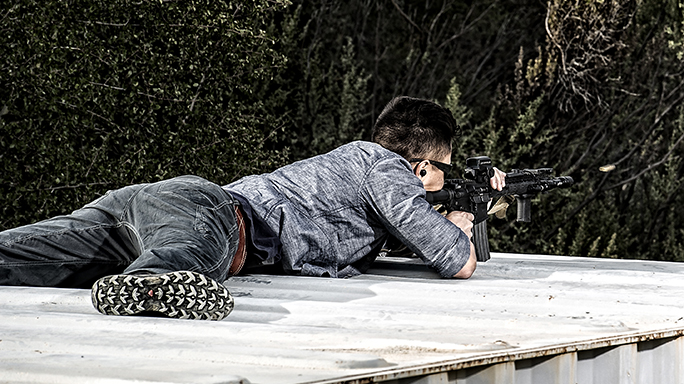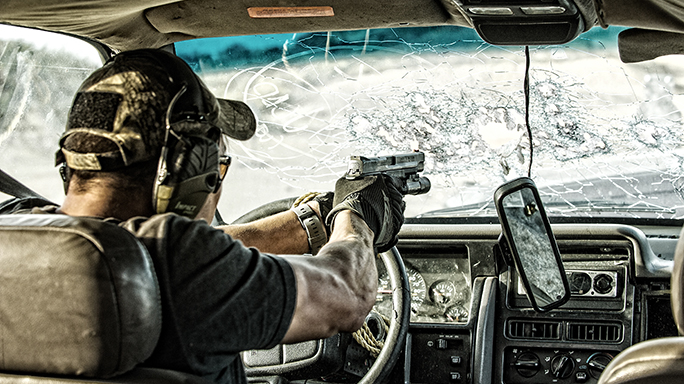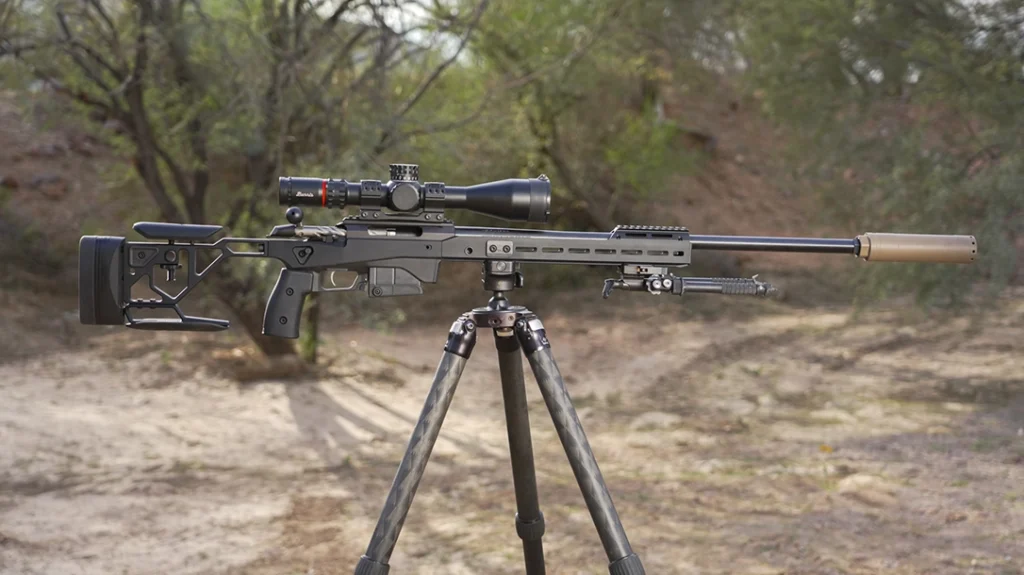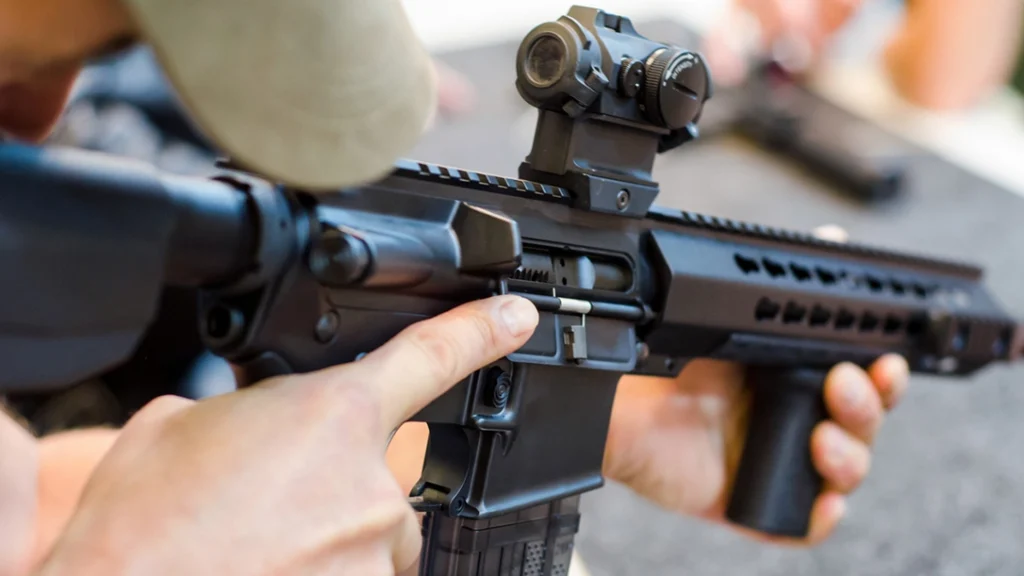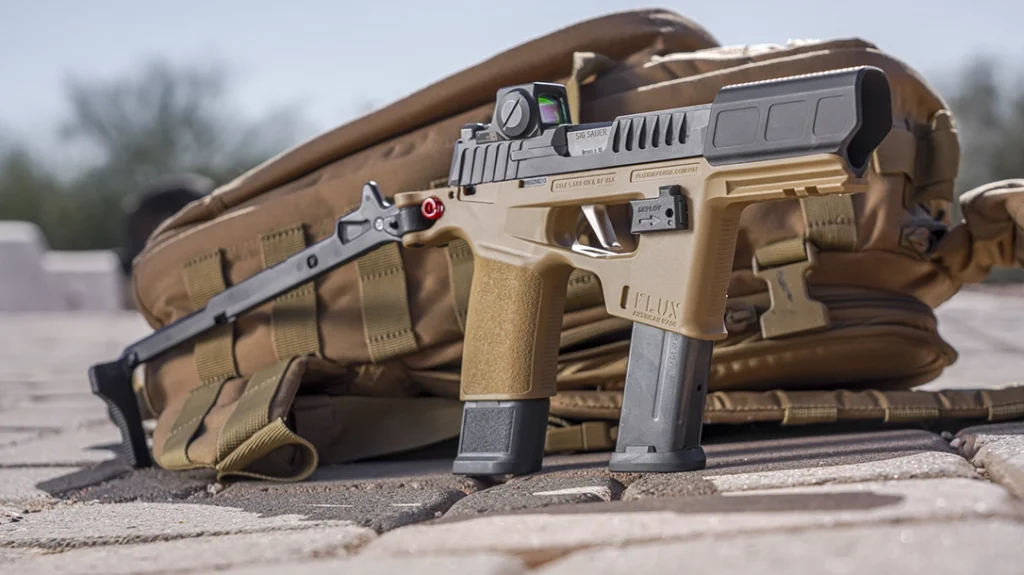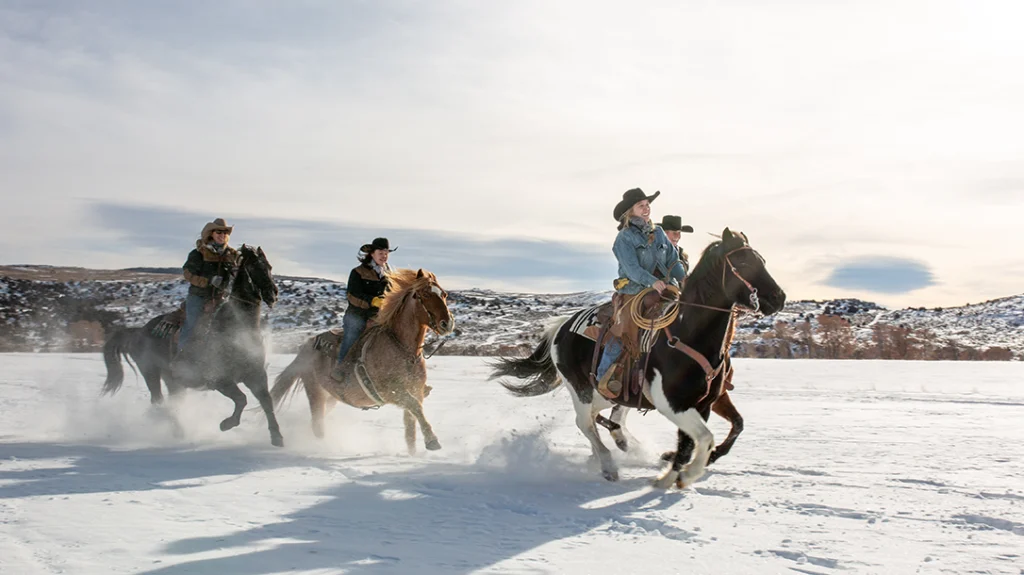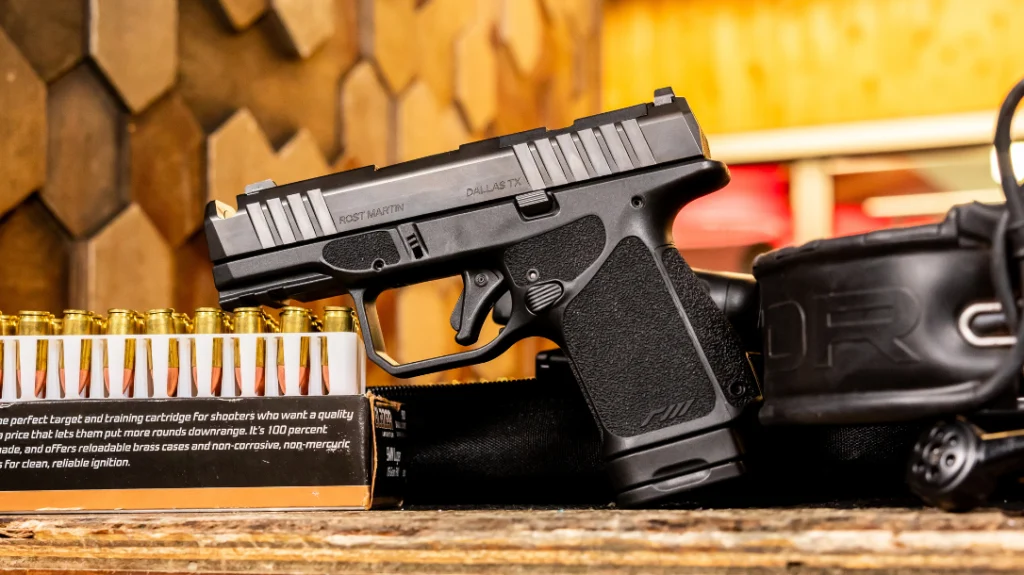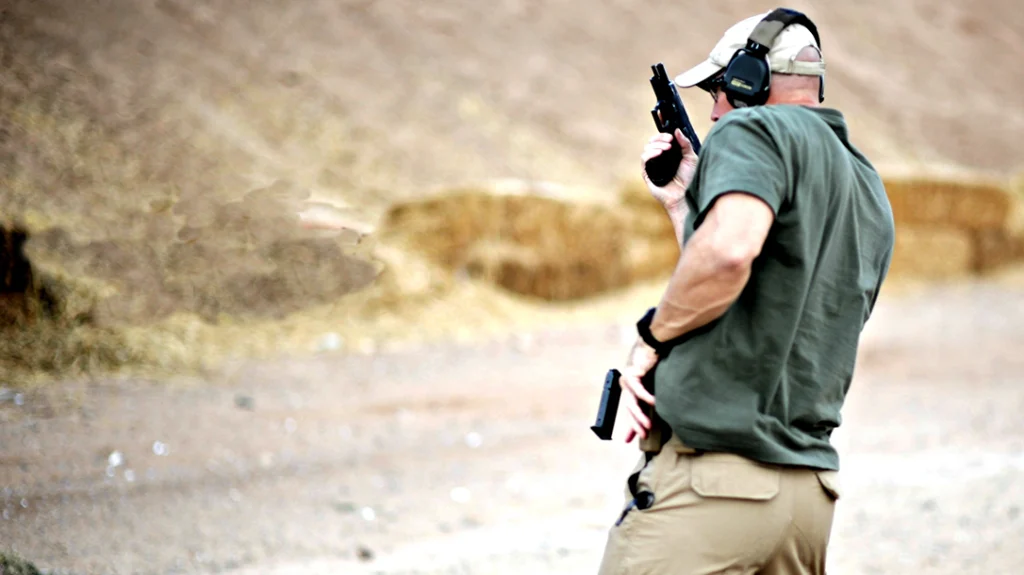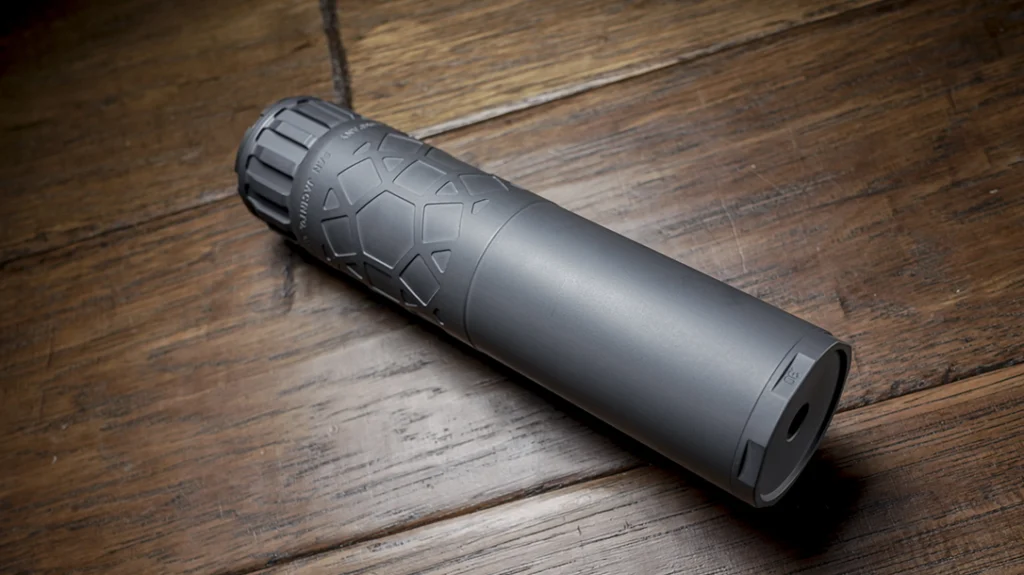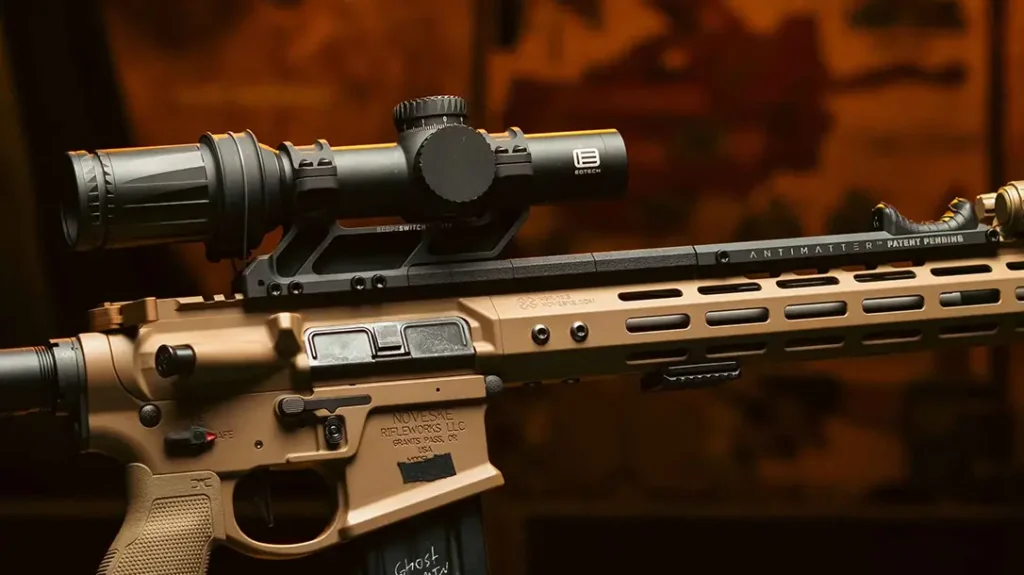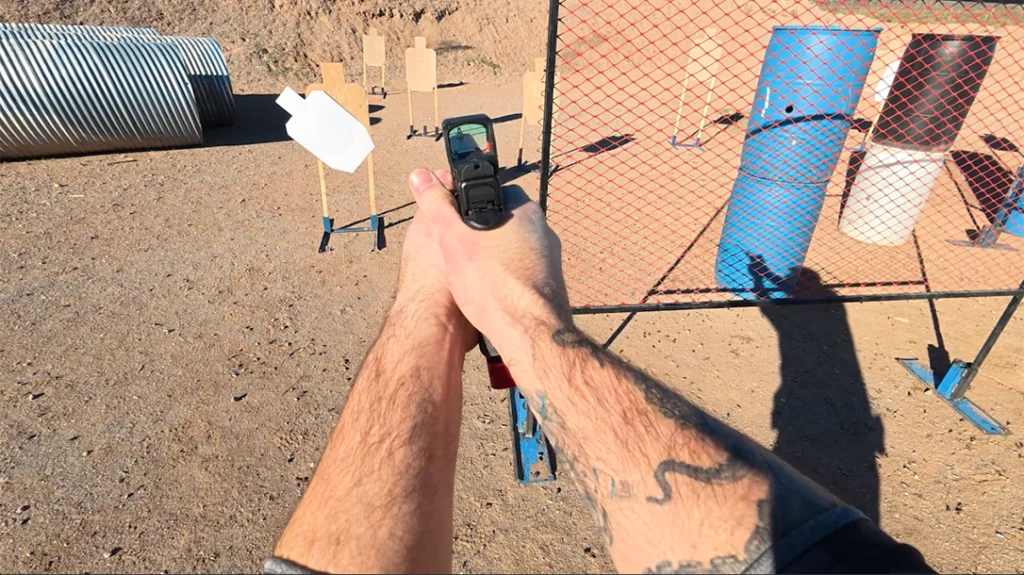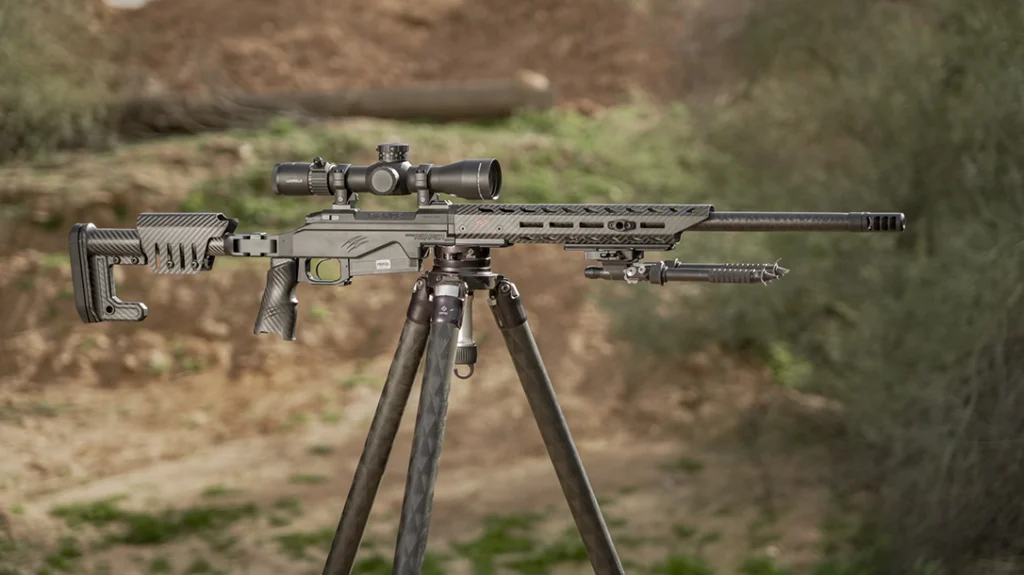Sun Zsu’s “The Art Of War” makes you sound like a genius at bar, but is hardly literature that military generals reference when they are developing war plans. Similarly, tactical shooters love to use the following list of phrases at the range. Don’t get me wrong, I’m just as guilty and have used every single term on the list. However, the problem with nuanced terms is that we often use them to justify laziness, or assume greater levels of experience than actually possessed.
“Train like you fight”
I went through a hard gear geek phase. I’d waste money on pouches just because they were a new color, not because they added any utility to my fighting abilities. Now that I’m a civilian, I rarely shoot in kit. Why? Because if I need to defend my home, realistically I’ll probably be in sweat pants and about two PBRs deep into the evening.
- RELATED STORY: Aaron Barruga: Firearms Industry Changing For the Better
There’s nothing wrong with being a civilian that buys war belts and battle armor, so long as it doesn’t distract from your marksmanship training or the actual environments you should realistically expect to defend yourself in. Tactical shooters are notoriously bad at assuming they always need to wear kit at training events. Moreover, the traditionally conservative nature of tactical organizations also doesn’t help. The type-A personalities in these units tend to assume that harder is better.
Advertisement — Continue Reading Below
Unfortunately, this training mentality can carry over to operations. I’ve listened to SWAT officers debrief callouts in which their entire team was on standby in kit; Snipers in turrets, left out to bake in the sun; Entry teams forced to remain on their feet waiting hours before negotiations ceased. On numerous occasions, these officers noted that they could have preserved the energy of the force by rotating teams on ready-rest cycles, but instead, the harder is better minds prevailed, suggesting that if an officer couldn’t “suck it up,” then perhaps he didn’t belong on the team.
“Operator”
This title means nothing anymore. Spanning the spectrum of Delta Force commandos to TSA security agents, every tactical group on the planet uses the term “operator.” Ironically, in truly elite tactical units where the title is justified, actual operators cringe when they are referred to by such namesake. Why? Because it’s so cheesy.
The commercial tactical industry has created a tough guy identity that in no way actually represents professional commandos or SWAT cops. Yes, professional operators like guns and challenging themselves physically. However, the over-the-top tough guy who regularly takes pictures of his EDC setup and is constantly looking for princesses that need saving is not a real person. It is a popular Instagram operator identity, but hardly represents real professionals.
Advertisement — Continue Reading Below
At training events, we notice that civilians want to dress like soldiers. Soldiers want to dress like Special Forces. Special Forces wants to dress like JSOC, and JSOC wants to look like normal civilians. It’s a vicious cycle. Don’t get me wrong, after my fifth jump at Airborne School, I went straight to the PX and bought a black short sleeve shirt with giant airborne wings printed on the chest. To the world I declared “I’m a paratrooper,” but to my colleagues I actually communicated “I’m cherry AF.”
“More tools for your toolbox”
In my workbench at home, I’ve got a drawer full of miscellaneous tools that I hold onto. Rather than throwing these items away, I keep them because I never know when I’ll need them in the future. Unlike toolboxes, our minds are unable to store unused concepts and later recall them under stress. Skills, movements, and mechanics must be practiced and routinely repeated if we truly intend to use them in hostile environments.
Tactical shooters love this expression because it allows them to approach new ideas without any real intent to learn. We assume that exposure to new concepts correlates with an increase in our skills progression. Instead, we become familiar with the most basic forms of concepts and stack them next to other basic concepts. This dynamic is best represented by the shooter that is great at regurgitating what other instructors teach, but is incapable of explaining based on personal experience.
Advertisement — Continue Reading Below
It’s not about attempting to accumulate as many tools as possible, it’s about understanding the core concepts and arguments that pertain to our pursuit of knowledge. From there we establish a foundation that we add to with comprehensive learning approaches, not just cherrypicking facts and accumulating useless information. If you’re adding a tool to your mental toolbox, the benefits better outweigh the consequences. Otherwise, you’re just carrying around junk.
“There’s no such thing as advanced marksmanship, just flawless execution of the fundamentals”
That is, until you need to start doing math or inputing variables into ballistic computers to calculate first round hits.
“Slow is smooth, smooth is fast”
It is easy to develop quick, but sloppy hand speed. All shooters go through a phase in which they plateau their skills by chasing time-based performance metrics. “If I move my hands faster, I’ll eventually get that sub-second draw.” Quick, but sloppy hand speed also affects us mentally. Fast, but jerky movements force us to tense up, forces target fixation, and causes us to be more anxious in moments susceptible to high anxiety (e.g. stuck mag during a slide-lock reload).
Advertisement — Continue Reading Below
In order to break this plateau we need to slow down our movements so that we can build consistency. So wait, doesn’t this mean slow is smooth, smooth is fast? No. It’s not about being slow, it’s about being relaxed so that we learn the speed at which we can successfully execute movements on a repeated basis.
“Knowledge bomb”
Similar to our nuclear arsenal, the use of “knowledge bombs” should be reserved for moments that are truly unique. I see it all the time, groups of “ambassadors” desperately attempting brand awareness.
Scrolling through Instagram, I’ll thumb across captions filled with lightbulb and bomb emojis. “My boy dropping straight knowledge bombs.” What’s this?!? I better check it out. I hit the video with my thumb to activate the sound and … dud. I watch a boring bomb in which common information is repackaged. Nope, discussing a slide-lock reload is not a knowledge bomb. Trigger finger placement is not a knowledge bomb. These are fundamentals that are discussed at the core of any legitimate marksmanship program.
Advertisement — Continue Reading Below
